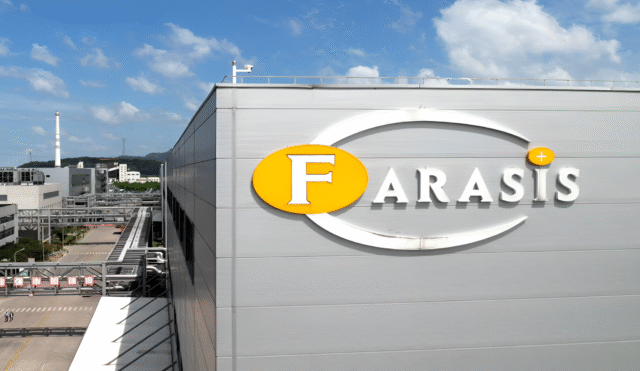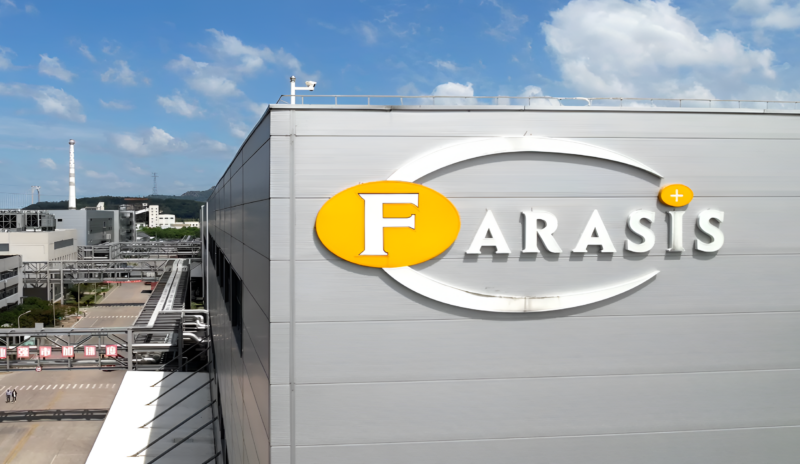Farasis Energy, backed by Mercedes-Benz, disclosed new details about its solid-state battery development during an investor relations meeting held on September 15, according to a filing released the following day, as reported by IT-Home. The company said it is accelerating research, pilot production, and industrialization of sulfide-based all-solid-state batteries.
Farasis confirmed that its first-generation all-solid-state batteries have advanced beyond laboratory stages and are now entering pilot production and delivery. Construction of a 0.2 GWh sulfide solid-state battery pilot line is underway, with the company planning to complete delivery of initial products by the end of 2025.
The first-generation cells combine high-nickel ternary cathodes with high-silicon anodes and are designed to achieve an energy density of 400–500 Wh/kg. Farasis expects to begin small-batch deliveries to strategic partners in late 2025. A second-generation version, featuring lithium-metal anodes paired with lithium-rich manganese-based or high-nickel ternary cathodes, is projected to reach 500 Wh/kg and is scheduled for release in 2026. The company also targets launching a third-generation product in 2027 with energy density above 500 Wh/kg.
Farasis said that its semi-solid-state batteries are already in commercial use at the gigawatt-hour level, with costs only 5–10% higher than conventional liquid batteries. The company expects significant growth in shipments by 2026 as designated projects expand. Current production bases in Zhenjiang, Ganzhou, and Guangzhou are compatible with semi-solid-state battery manufacturing. They will also support the solid-state pilot line expansion to the gigawatt-hour scale in 2026.
The company reported that its SPS batteries and semi-solid-state batteries have secured projects with customers, including Xpeng AeroHT, GAC Group, and a leading domestic new energy commercial vehicle manufacturer. These projects are intended to support applications in areas such as urban air mobility and humanoid robotics.
Farasis also announced that it has introduced a first-generation solid-state battery for humanoid robots. Samples have been delivered to leading companies in the robotics sector, with joint development underway. The cells use a sulfide solid electrolyte, high-nickel ternary cathode, and high-silicon anode, with energy density reaching 400 Wh/kg. They have reportedly passed nail penetration, 250°C thermal chamber, and shear tests.
According to the company, customised development for humanoid robots includes optimising size and output modes to meet requirements for lightweight design, long range, and high safety, positioning the batteries separately from its automotive power battery products.
Follow us for ev updates









